|
'Getting more visible in Google' is firstly a case of changing old thinking away from 'ranking for keywords' and more towards maximising a 'Page 1 share of voice', or 'share of SERP'.
(Check out our recent blog post to better understand why this is becoming so important). Just to be clear - we're not saying that keywords aren't an important part of an earned strategy... But in the world of SEO, where even Google suggests that it can take at least 4-12 months to start seeing tangible results and the competition is increasing every day - starting with a focus to improve Share of SERP makes sense. Improving visibility and Share of SERP can give small businesses (and large ones) 'quick wins' and more opportunities to be in front of your most relevant customers when it's most relevant. What are The Benefits?
Take Up More of the Room
One on-the-front-foot way of thinking about Share of SERP is as this SMX presentation puts it:
Don't Miss Online Opportunities
Or for the risk-averse, it's also a case of getting the basics right so that your business isn't potentially leaving leads on the table - or even worse - throwing them away. 11 Things You Can Do Right Now to Improve
How can you work towards more 'share of SERP'?
In a number of ways - some of which you can implement easily and right away: Note: we're assuming in this article that you've covered the basics such as submitting your site and XML sitemap to Google Search Console to ensure there are no errors and are now looking to take the next step to earn more visibility. 0. Don't Waste the Space You've Already Earned
Step '0' is to consider the very basics of on page optimisation and the bare minimum info Google displays in a search result:
Make sure these are well-written, free from typos, descriptive, relevant and ideally include a 'call to action' in your meta description. Most modern web content management systems should allow you access to these things either by default or with the help of a plugin. In short - Don't waste the space you already have. 1. Google My Business
It might seem basic, but - ensure your Google My Business ('GMB') listing is optimised, completed, up to date and appears when you search for your business name .
I.e.: If you want people to be able to use the 'Call' and 'Navigate' options from the search results, you need to have the 'phone' and 'address' information filled out. Makes sense, right? Get started at: https://business.google.com/ While you're there, try the brand new Google Posts feature in Google My Business to publish your events, products, and services directly to Google Search. 2. Add Structured Data
Implement and maximise your structured data (especially if you are a museum, movie theatre, musician or sports group).
Get noticed, potentially appear in the knowledge graph or even just to help your business stand out in the organic search results. One example of structured data is starred reviews:
How?
There are a number of ways to add structured data and countless articles online, so we won't go into detail here. Some of the most common ways are:
3. Consistent NAP Details
Ensure your NAP details (Name, Address, Phone Number) are up to date and added to any high quality, relevant directory sites that rank for your search terms.
Consistency also helps Google and other search engines 'see' your different business listings as the same business. This strengthens your presence rather than diluting it. Again, this one might seem obvious - but we see it all too often. A quick word of warning:
If you have a large number of location listings to manage, or need some help claiming listings, you could consider a third party service like Yext or Moz Local to make things easier. 4. Get Creative
Check the search results for other creative avenues that appear alongside your search terms.
Think along other lines such as...
5. Look to The Community
Get active on Social Media
Participate on industry group sites and relevant online communities, aim for a citation or link. Again, this one comes with a big 'take care' warning. For example - Old spammy back linking techniques are high risk and mostly don't even work these days. In short - your guest post should of quality and provide value in it's own right or be highly relevant... not simply a reason to back link to your own site to 'get more links'. Here's a video from Google's Matt Cutts which addresses the question of guest blogging (even back in 2012 it was getting into a grey area).
And here in a more recent 2017 video - Google's Marie Haynes discusses which type of links you can get that do/don't comply with Google's guidelines:
6. Buy it With Adwords
The phrase "if you can't beat 'em, join 'em" comes to mind. But in reality, ads take up more space on SERPs than ever before... especially on mobile.
A few thoughts:
7. Match Content to User Intent
Don't become blinkered and optimise content for single keywords (or broad topics) - try to anticipate and solve user's needs.
In general - Write naturally, match content to the intent of the user who is searching for the page and provide a solution. An example of keywords matched to user intent: 8. Give the Best Answer
Taking point 7 a step further...
Strive to create the very best answer to the question or solution to the problem that the user may be looking for with quality content – a great response that truly deserves to rank on page one organically. As a bonus result, possibly earn a spot as a featured answer directly on the SERP: 9. Think Beyond Text on a Page
Google also displays info such as Videos, Images, News, Maps, Books, Products and Twitter feeds on the search results page.
Could your great answer from point 7-8 be better served as a how-to video, infographic or a PDF e-book? 10. Hijack The Knowledge Graph
Think of other ways to (respectfully) hijack the knowledge graph...
Perhaps build a glossary page or aim to achieve a '#0 ranking' in Google for answers
Here is a possible result:
11. Wear a White Hat. Don't Be That Guy...
Lastly (it needs to be said) - don't try to game or trick the search engines.
Most of those techniques have long been marked as black hat and if they aren't, it's probably not long before they end up on Google's radar. Even if you're winning now with black hat, you might be one algorithm update away from getting a slap down and losing all of your hard work.
(12) What we haven't covered here ('other stuff')...
We'd call these separate topics in their own right and there is plenty of info online that covers these in detail:
In Conclusion
We still see many small, medium (and some large) businesses missing the basics when it comes to visibility online, when it's more critical than ever to start from a solid foundation.
This does leave opportunities on the table for those who can adjust their thinking and start considering the way the modern SERP works and looks - ultimately, maximising their share of SERP. We hope this guide offers some practical, actionable steps to improve your business' visibility online and improve your share of SERP. Get the Infographic
Additional reading:
This article on PPC Hero expands further on 'share of SERP' and this SMX post on Slideshare gives further tips (including some more advanced ones on implementation and optimisation.
1 Comment
9/5/2018 08:22:55 pm
Great blog indeed, I fully enjoyed it and think, you have discussed here the points, that every one should know. I am fan of your blog and will read your upcoming posts. Cheers.
Reply
Your comment will be posted after it is approved.
Leave a Reply. |



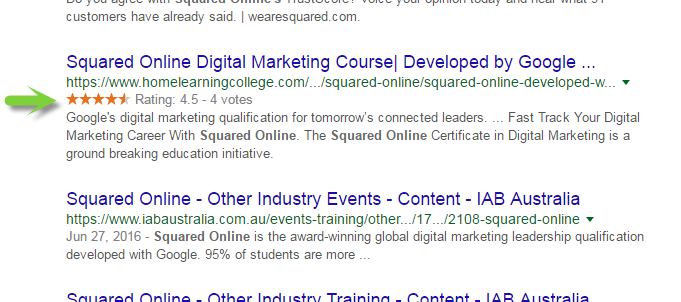
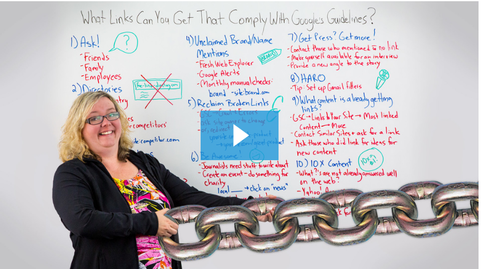
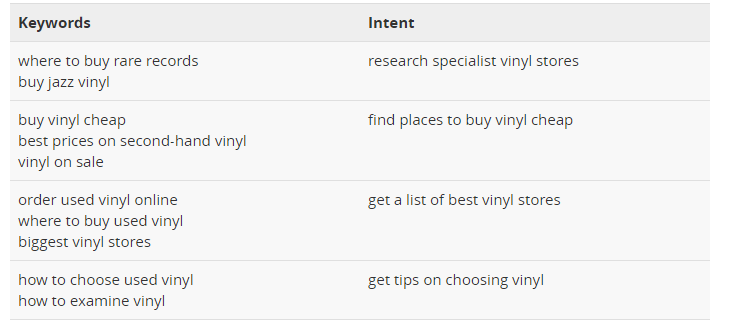
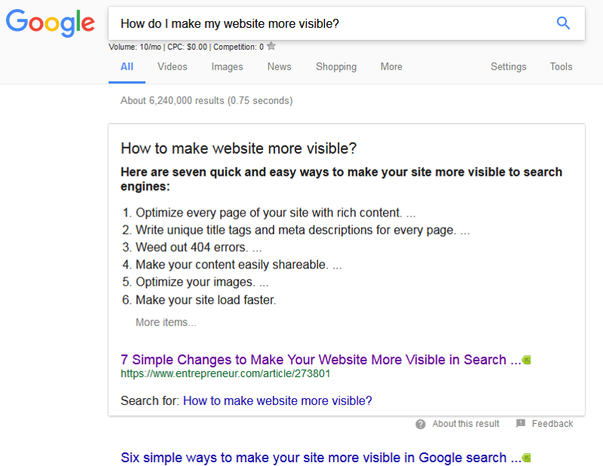
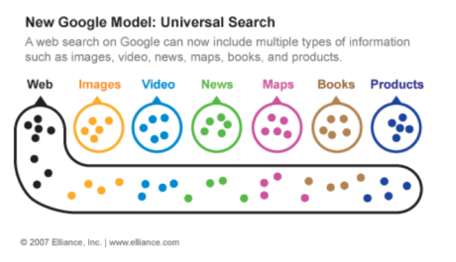
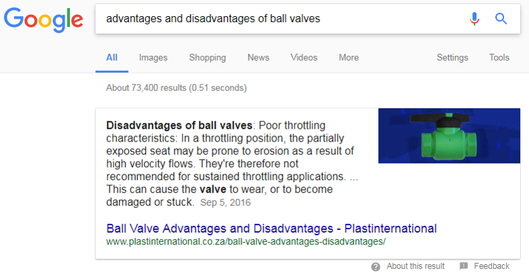
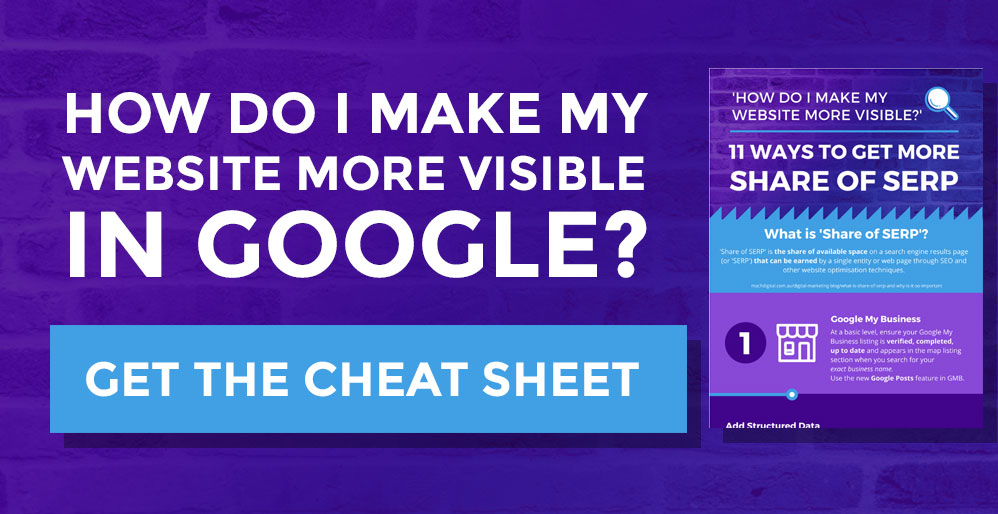
 RSS Feed
RSS Feed
